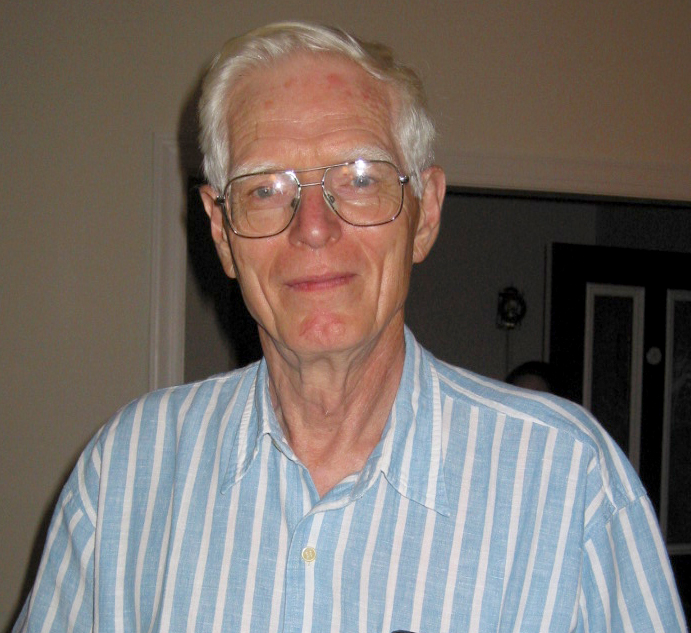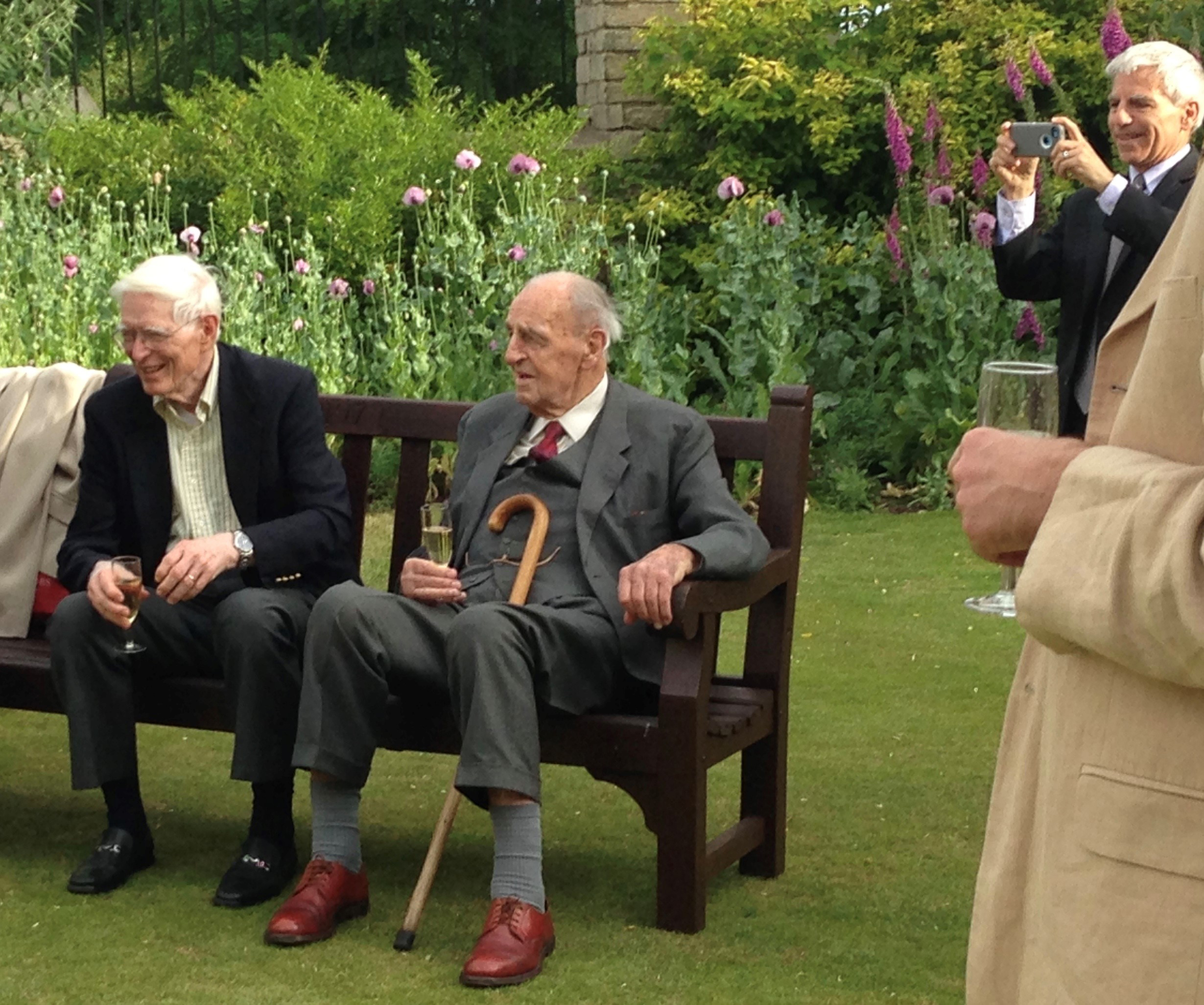Philip A. Stadter
November 29, 1936 – February 11, 2021
In Memoriam

Philip A. Stadter, a leading figure in the study of Greek historiography and biography whose scholarship, influence and friendships extended around the world during his over forty years teaching at the University of North Carolina, Chapel Hill, and almost two decades of an active retirement, has died at 84 in Pittsboro, NC.
Philip was born in Cleveland, Ohio, and received his A.B. from Princeton in 1958, and his Ph.D. from Harvard in 1962, where he was a student of Herbert Bloch. He served in the UNC Classics department from 1962 to 2003, ending his career as Eugene H. Falk Professor in the Humanities and Professor of Classics and of Comparative Literature. His graduate work was supported by a Woodrow Wilson Fellowship, and by a Fulbright Fellowship that let him spend 1960-61 in Rome, Italy, where he met Lucia Ciapponi whom he married in Italy in the summer of 1963. The story goes that Philip was offered a job by Department chair Albert Suskin in the corridor of a hotel in Philadelphia during the annual meeting of the American Philological Association, largely on the strong recommendation of Kenneth Reckford (Harvard Ph.D. 1957).
At UNC he served as department chair (1976-86), as teacher of a broad range of Greek and Latin undergraduate and graduate courses, as Director of the Lilly Teaching Fellow Program (1990-1993), and as a member of the Board of Governors of The University of North Carolina Press (1989-2003). He was Professor of Comparative Literature from 1991, and at times taught courses jointly with Duke University faculty, and students from both campuses. One measure of the success of his decade as chair is that those who completed their Ph.D. during or soon after his time as chair have had long and influential careers at St. Olaf, Massachusetts, Virginia, Bucknell, South Carolina, Cincinnati, Duke, Tennessee, Wake Forest, Syracuse, Pennsylvania, Virginia Tech, Pittsburgh, Buffalo, Miami, Santa Barbara, Ohio, Texas A&M, Washington University-St. Louis, and Georgia, as well as leadership positions, including that of President, in the American Philological Association/Society for Classical Studies, The Classical Association of the Middle West and South, and the American Classical League.
Philip served the Classics profession as Director of the American Philological Association (1977-80) and on the Publications Committee (1996-99). He was President of the International Plutarch Society, 1991-93, 1999-2001, and served on its Executive Board from 1986. He was a member of Société internationale de bibliographie classique, 2000-2015, Editor for Roman Studies of Greek, Roman and Byzantine Studies, 1969-1978 and Editor of American Journal of Philology, 1996-2000 (Honorary Editor, 2000-). He also served on the editorial board of Histos (1996-2000). He served as Secretary (1964-67) and the President (1968) of the North Carolina Classical Association, and as Vice-President for North Carolina of the Classical Association of the Middle West and South (1966-72).
Besides the graduate school fellowships mentioned above, Philip’s work was supported by a Guggenheim Fellowship (1967-68, Florence, Italy) – remarkably just five years after completing his doctorate; an NEH Senior Fellowship (1974-75, Cambridge, Massachusetts); an ACLS Fellowship (1982-83, Oxford, England); a National Humanities Center Fellowship (1989-90); a Faculty Fellowship at the Institute for the Arts and Humanities, UNC (1996); and most recently a Fowler Hamilton Visiting Fellowship at Christ Church, Oxford (April-June 2013).

A brilliant and influential scholar, Philip’s expertise ranged from Classical Greece through Imperial Rome and beyond. His book-length publications are Plutarch’s Historical Methods: An Analysis of the Mulierum Virtutes (1965); (with B.L. Ullman) The Public Library of Renaissance Florence: Niccolo Niccoli, Cosimo de’ Medici and the Library of San Marco (1972); Arrian of Nicomedia (1980); A Commentary on Plutarch’s Pericles (1989); and Plutarch and his Roman Readers (2015). He was editor of The Speeches in Thucydides: A Collection of Original Studies with a Bibliography (1973) and Plutarch and the Historical Tradition (1991). He was a co-editor with Luc Van Der Stockt of a volume that followed an international conference in Chapel Hill in 2000: Sage & Emperor: Plutarch, Greek Intellectuals, & Roman Power in the Time of Trajan (98-117 AD) (2002).
Philip also published dozens of groundbreaking articles and chapters on Plutarch, Thucydides, Herodotus, Xenophon, Arrian, Plautus, Horace, Caesar, Livy, and Pliny. The brilliance of many of these has been recognized by republication, among them his seminal “The Structure of Livy’s History” (republished in Livy, Oxford Readings 2009), “Fictional Narrative in the Cyropaideia” (Xenophon, Oxford Readings 2010), “Herodotus and the Athenian Arche” (Herodotus, Oxford Readings, 2013). Philip also sought to make Classics accessible to a general audience, as by writing the Introductions and notes for the Oxford World’s Classics translations of Plutarch by Robin Waterfield (Plutarch: Greek Lives (1998) and Plutarch: Roman Lives (1999). He wrote on “Characterization of Individuals in Thucydides’ History” for the 2017 Oxford Handbook of Thucydides.
At a time when the University was beginning to recognize how important it is for younger faculty to have senior scholars as mentors, Philip Stadter was a natural mentor. His wide-ranging curiosity, amiable nature, and genuine interest in the work of other scholars led him, throughout his career, to work with, advise, and help everyone from graduate students to newly-appointed Department chairs (after his own decade-long tenure of that position). One colleague recalls, “We first met on my campus visit at the restaurant on the corner of Franklin St., and he took me under his wing from then on.” Many of our faculty would recognize this gesture of friendship and support. Philip was a regular attendee for many years at the Friday historians’ lunches, an occasion that allowed younger colleagues not only to enjoy his sparkling conversation, but also to consult with him on practical questions and bounce off ideas about works in progress and teaching.
Phil himself was an eager learner, curious about many things. In the seventies and eighties, when computers were first appearing, he was immediately interested; and had worked hard with David Packard, then a member of the Department, to develop our computer capabilities, both individually and as a department, and also produced a concordance of Arrian on microfiche.

Philip had a wide circle of acquaintances and friends, and that led to contacts, useful for our students, with scholars at many different schools, among them Oxford University. In Chapel Hill, he worked with Berthold Ullman on both revisions of Latin for Americans (a high school text) and The Public Library of Renaissance Florence. The knowledge and experience he thus acquired was, of course, a benefit to the Department: he served as director of the elementary Latin program for several years, and he was a knowledgeable member of search committees when we were seeking a medievalist/paleographer. Friendships, with Phil, came from and led in many directions.
Philip was a perceptive, warm, and tactful friend, both professionally and personally. One of his colleagues recalls, “One evening in the sixties, when we were at the American Academy in Rome, we had had supper, chatted for a while, and then retired to our room to read and get ready for bed. The phone rang. It was Phil: ‘I’m in Rome unexpectedly and wondered if you’d like to get together for a glass of wine.’ ‘Now?’ I hesitated. Phil, instantly understanding my hesitation, said, ‘I’m sorry. You are all set for the night, warm, comfortable, and deep in a good book. Let’s do it some other time.’ Thus his tact rescued us both.”
He was a wise and down-to-earth counselor, able and happy to pass along advice based on his experience. Once, a friend’s son, deep in the college admissions process, was beginning to plan trips to visit various schools. Philip advised: “Do not let your son visit any school where you would not be happy to pay the tuition.” “Don’t let your son eat in the cafeteria: what if he has a great plate of French fries and bonds with the school, but it’s a lousy school?” And finally: “If you want your son to go to a particular school, have him visit there by himself, with no parents in tow.”
In 2001 Philip was honored by a conference in Bergamo, Italy that became the volume Modelli eroici dall’antichità alla cultura europea, edited by A. Barzanò, C. Bearzot, F. Landucci, L. Prandi, and G. Zecchini (2003). In 2005 the International Plutarch Society honored Philip for his service with the volume Historical and biographical values of Plutarch’s works: studies devoted to Professor Philip A. Stadter, edited by Aurelio Pérez Jiménez and Frances B. Titchener (Málaga and Logan, Utah 2005). He received an honorary doctorate from the Università del Sacro Cuore of Milan, Italy in 2008.
From 2003 Philip was Professor Emeritus at UNC-Chapel Hill but continued to be a regular and beloved visitor and invited speaker in classes ranging from The Greeks (where his sparkling cameos brought Plutarch and his intellectual milieu alive with invocations of Hillary Clinton and Chuck Schumer), to the Junior Seminar on Delphi, and graduate courses on the Greek historians. He is remembered by UNC Classics faculty as a brilliant interlocutor and enthusiastic mentor, and, together with his wife Lucia, as a superlatively kind and generous friend and host. He is a man indeed who reminds us of all the best aspects of his own favorite author, Plutarch.
ἀλλ᾿ ἡ φιλία στάσιμόν τι ζητεῖ καὶ βέβαιον ἦθος καὶ ἀμετάπτωτον ἐν μιᾷ χώρᾳ καὶ συνηθείᾳ· διὸ καὶ σπάνιον καὶ δυσεύρετόν ἐστι φίλος βέβαιος. (Plutarch On Having Many Friends 9)
But friendship seeks for a fixed and steadfast character which does not shift about, but continues in one place and in one intimacy. For this reason a steadfast friend is something rare and hard to find.
Jim O’Hara
Emily Baragwanath
George Houston
2 Responses to “Philip A. Stadter November 29, 1936 – February 11, 2021 In Memoriam”
David Ganz
Phil welcomed me to the Department as a one year appointment in 1980-81 and his support for an Englishman with no classical training and no idea what the APA (let alone the placement book) might be was very much treasured. When Guiseppe Billanovich, the great Italian scholar of Renaissance humanism, came to Chapel Hill, it was quite clear that he regarded Philip and Lucia with admiration and affection. His knowledge of manuscripts and his interest in the survival of the classics made him a valued colleague at a time when Murphy Hall managed to grasp something of the ‘Republic of Letters’ with Fritz Solmsen, Bob Broughton and Berthe Marti as the presiding lares. During a rather dull department meeting, when we were going through the inevitable questioning of the role of the Department, and even of a degree in Classics, he said that he hoped that we helped to form good citizens, and managed to say that with conviction and without pretension. It was what he tried to do, and I hope, in my case, that he succeeded.
Sit terra levis
(Jonathan) Scott Perry
When President Clinton came to Chapel Hill in October 1993, as part of UNC’s Bicentennial Celebrations, I was enrolled in Prof. Stadter’s graduate seminar on Thucydides. A presidential visit being a rarity, even at UNC, most of us had crowded into Kenan Stadium to hear the speech–which was preceded by a rousing encomium to Chapel Hill by the beloved Charles Kuralt–and, in the class held the next day, Phil asked us to pull out a sheet of paper and write down, from memory, what Clinton had said. The results were, as one might expect, utterly at variance with each other. “Now,” he said, “you can understand Thucydides’ speeches.” I have cited this incident every single time I teach Thucydides–it was a brilliant moment of teaching, offered by an eminent historian in multiple specialties. At the conclusion of the seminar, Lucia and Phil welcomed us into their home–for what I remember as a magnificent meal, presided over by the host’s twinkling eyes. Please pass my deepest condolences to Lucia, his children, and grandchildren; we were all very lucky to share his presence with them.